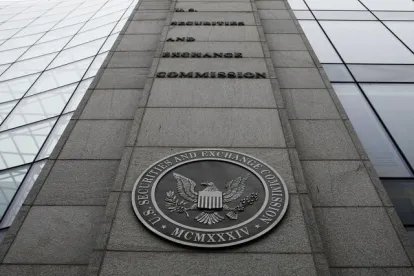Today, the Federal Register published the Whistleblower Program Rule changes approved by the U.S. Securities and Exchange Commission (“SEC” or “Commission”) on September 23, 2020. The changes published today not only impact the requirements governing the whistleblower program, but they establish new deadlines relevant to thousands of current or future cases.
While the effective date of the rules changes is listed as December 7, 2020, each rule’s applicability date should be examined as many are retroactive.
In Section III of the published rules, the SEC carefully explains the applicability of each provision. Highlighted below are rules that can impact pending cases.
Among the new deadlines established by the SEC are:
-
Rule 21F-4(e) defining “monetary sanctions.” This rule change will be applied retroactively and has a significant impact on the amount of an award a whistleblower may be entitled to under pending cases and in cases related to non-prosecution agreements. The rule applies “calculating any outstanding payments to be made to meritorious whistleblowers.” This means the rule covers all pending cases. It also covers sanctions obtained in cases resolved by non-prosecution agreements where the SEC never published a Notice of Covered Action.
-
Rule 21F-6 concerns the SEC’s discretion in small cases where sanctions obtained by the SEC are $5 million or less that rewards should be paid at the highest amount (i.e., 30% of sanctions obtained), barring the existence of negative factors that would justify a reduction. This rule applies to “all award claims still pending” on December 7, 2020. Thus, the applicability of this rule is retroactive.
-
Rule 21F-9 requires whistleblowers to file complaints using the TCR form to qualify for a reward. Whistleblowers have 30-days from an initial contact with the SEC to file the TCR. The 30-day requirement is tolled until a whistleblower obtains actual or constructive knowledge of the TCR filing requirement. However, the thirty day requirement can be triggered when a whistleblower hires an attorney to file a reward claim. This provision applies “to all award claims still pending” as of December 7, 2020, and all future filings. All persons contacting the SEC with information on potential violations need to be aware of this 30-day filing deadline, along with all attorneys who represent whistleblowers in SEC proceedings.
-
Rule 21F-13 relates to the administrative record on appeal of Whistleblower Award Applications. Under this rule, any WB-APP award application filed with the SEC after December 7, 2020, may not be supplemented. Therefore, whistleblowers must be careful to include the entire basis for an award claim in their WB-APP application. This rule applies “only to covered-action and related-action award applications that are connected to a Notice of Covered Action” posted on or after December 7, 2020.
-
Rule 21F-18 established a new summary disposition process. This rule applies to “any whistleblower award application for which the Commission has not yet issued a Preliminary Determination” as of December 7, 2020, as well as to any future award applications that might be filed. Therefore, this rule impacts pending reward claims.
-
Interpretive guidance on the meaning and application of the term “independent analysis” in Rule 21F-4. The SEC intends to rely on the principles articulated in the guidance for “any whistleblower claims that are still pending at any stage.” Thus, any person who has already filed a TCR complaint or a WB-APP application based on the “independent analysis” rules should examine this new guidance and determine whether they need to amend or supplement their filings.
The SEC whistleblower program has been extremely successful. As of today, the Commission has collected over $2 billion in sanctions from whistleblower cases, paid to harmed investors well over $750 million, and paid 112 whistleblowers over $719 million in rewards.




 />i
/>i

